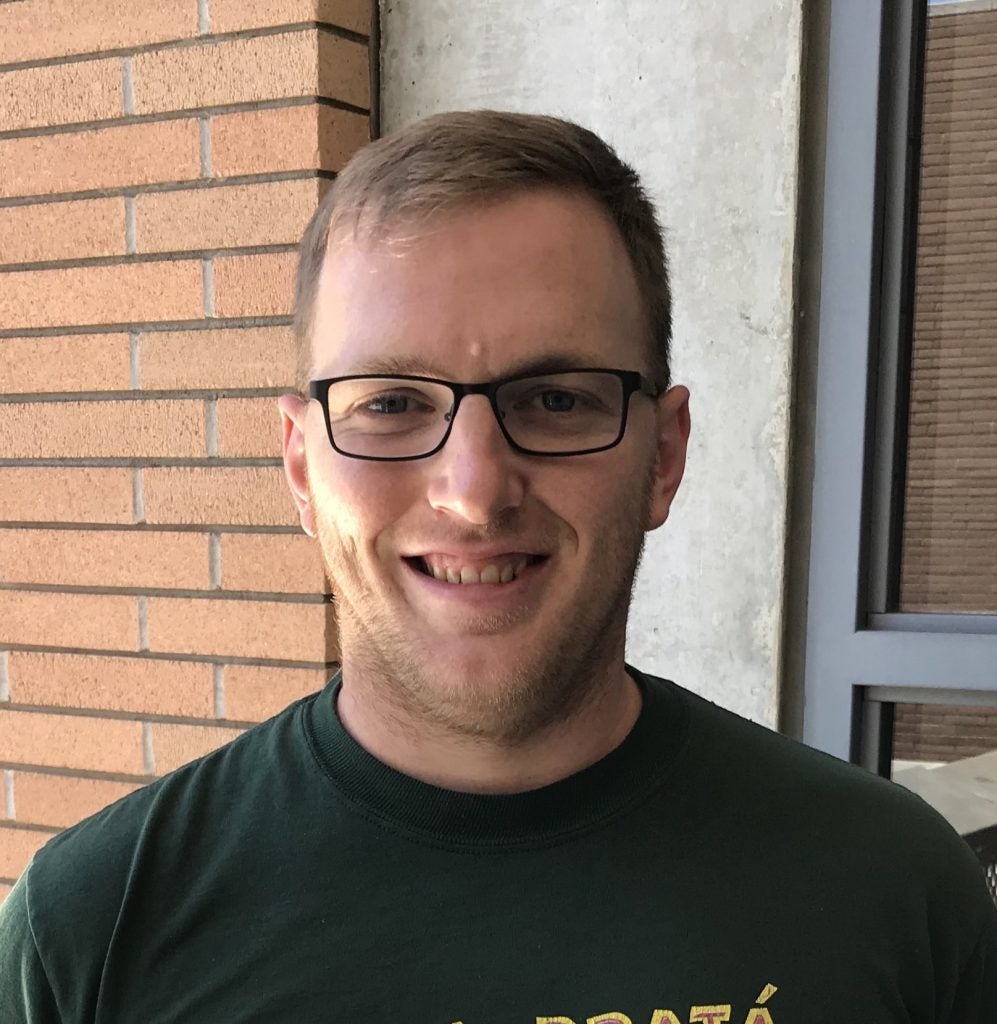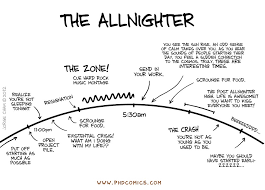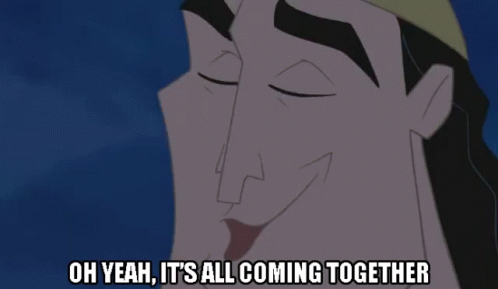Supporting Graduate Students' Academic and Professional Success

We had the opportunity to chat with Stephen Exarhos, recent Ph.D. graduate in Mechanical Engineering and M.Ed. graduate in Higher Education Administration and Policy about his time as a student at UCR. Stephen shared his insight, experience, and advice on grad student life.
1. What did you get your degree in, and what are you doing now?
I received my Ph.D. in Mechanical Engineering in August 2018 and also my M.Ed. in Higher Education Administration and Policy in December 2018. In my Ph.D. program, I developed some new techniques to synthesize complex materials in nanoparticle form. I was also able to do some interesting characterization to understand how to control defects in the materials to optimize them for their proposed applications, like photovoltaics, photo-catalysts, and transparent cranial implants (“windows to the brain”).
In the M.Ed. program, most of my work was centered on understanding social perceptions of diversity in physics higher education. My primary interest is figuring out how to convince physicists that subjective questions like that of how to improve the social climate experienced by diverse groups of physics students must, in turn, be answered subjectively (i.e. there is no definitive ‘solution’), which can be contrary to the way we physicists are trained to think.
I am now reaching the end of my first year as Academic Coordinator in the Physics & Astronomy Department at UCR. In this position, my primary responsibility is to oversee the introductory physics labs, which includes updating the curriculum, managing an army of graduate teaching assistants, and trying to ensure that the ~1,500 (!) students per term coming through the labs have a good experience. I really appreciate that this position lets me be a participant-observer — I get to not only work with students and implement some of my ideas on physics teaching, but I am also immersed in the climate that I am seeking to understand with my continued scholarly work.
2. What are the top 2-3 things you did while at UCR that helped you finish your degree (and get a position in your field, if you have)? What was most helpful to you as a student here?
The most important thing that kept me going was participation in communities that were completely partitioned from my academic work throughout my grad student career. In the first couple of years, I played soccer in different local men’s leagues four or five days per week. And when my ankles stopped working, I got back into coaching soccer several days per week. And when my ankles really stopped working, I joined the M.Ed. program — I’m not sure how I came to the conclusion that this was an acceptable “extra-curricular” activity for me, that was a terrible idea, but it did a really good job of disengaging me from my Ph.D. work a few evenings per week. Just having these spaces where I was forced to change mental gears helped me avoid burning out (or at least helped me postpone it).
Even more helpful than these communities, though, were my close relationships with my partner, close friends, family, and my cats (of course). It’s really valuable to have that someone who will make you dinner after a rough day, or that group that will help you handle an email from your PI that fills you with dread, or that little furry friend that will sit on your lap after you’ve collapsed on the couch following an overnight set of failed experiments.
3. What did you like best about your graduate work? What did you like least?
Honestly, I think what I liked best were the weekend-overnight experiments that ended up comprising the centerpiece of my dissertation. I mean, they were awful to do, and I was in a pretty sorry state, but it felt like a sort of rite of passage. I think that speaks to my over-pronounced competitive nature and my extremely unhealthy perception of what academic research is supposed to be, but it feels really good to say “I did that.”
I also really appreciate a lot of the conversations that I experienced in and out of class with fellow students in the education program. These incredible people are the reason my career path looks the way it does now. I had been following both of my parents and my older siblings along the path that looks something like “pick something you are exceptionally good at, and work hard enough to be better than your peers at it.” Though I wouldn’t really say I’m an exceptionally good experimental scientist, I am at least capable enough to succeed in that kind of career. But after some time spent in the Graduate School of Education, I made the decision to prioritize causes I care about ahead of activities where I may have the background knowledge and experience to succeed. It has been and will continue to be a steep learning curve, but I maintain that it was the right choice for me, and I think it is one of the more meaningful choices I’ve made in my life.
The worst parts of grad school were all the failures. The incessant and inexplicable failures. So much time I spent in grad school went towards ultimately unsuccessful endeavors, whether they were experiments, projects, manuscripts, etc. The professional dismissal got under my skin a lot as well; I never really felt like a part of the community of scientists in my field, regardless of how advanced my research became. That’s one of the reasons I’m so satisfied with the intellectually diverse community I was able to find at UCR away from my research field. It’s hard to keep going when you have a month or six with zero progress on a project, but that community of support is what helped keep me going.
4. Is there anything you wish you had done, or regret doing/not doing, while you were a UCR graduate student?
No, not really. I think there are a lot of things that I wish I had learned a little bit better, but none of the things I learned were ever going to be complete. That would take all the fun out of being an academic anyway — why would we ever want a question to be finished?
From a social perspective, I suppose I wish I did a better job at maintaining my pre-grad school friendships, but the good thing about good friends is that they always welcome you back into their lives, no matter the circumstance.
5. What are you most looking forward to in your new position/post-graduate life?
More freedom over the questions I get to ask and what I get to spend my time thinking/writing about. I think my former PI and I share a lot of the same scientific interests, but I think we tended to be a little bit at odds for where we wanted the research to end up. Admittedly, though, this might have just been me being stubborn.
6. What advice do you have for other graduate students at UCR about finishing their degrees, going on the job market, or life in general?
With regard to your degree, make it your own. It’s definitely important to satisfy any demands from your PI, but it’s also important to keep in mind that your PI only controls you for a few years. To that end, make sure that what you do in your degree sets you up for the career you want to have. For me, that meant finding opportunities to work with students, to develop educational programs, and to improve as a writer. Even with all that, I was able to accomplish the work that my PI required of me, and now my career path is headed in exactly the direction I want it to be.
For the job market, build your network, build your CV, and be lucky. I applied to a lot of positions, and the only applications that made it past the first round were the ones where I knew somebody at that institution (this might just be a reflection on the quality of my applications, but I think the point still stands).
Beyond that, “don’t panic,” and remember to bring a towel.



